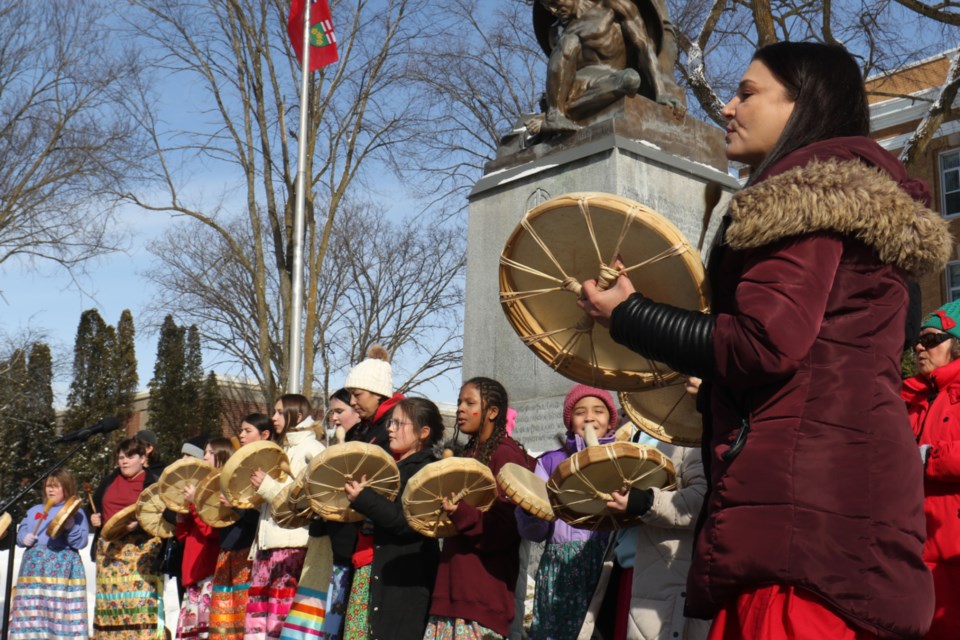Members of the public gathered outside of the Sault Ste. Marie Courthouse on Valentine’s Day to honour the missing and murdered Indigenous women, girls and gender-diverse people in Baawaating and across Canada.
Now in its 18th year in Sault Ste. Marie, the MMIWG2S+ Memorial March is part of a broader national movement that began in 1992 in Vancouver’s Downtown Eastside, when people began to gather to call attention to the disproportionately high numbers of missing and murdered Indigenous women in that neighbourhood.
“This memorial march has grown into a movement, and each year we gather on this day to remember, honour, grieve and demand answers for Indigenous communities and survivors across Canada,” said Batchewana First Nation Jessica Bolduc, who served as MC for Friday’s event.
“This march is also a time to stand in solidarity with the families whose loved ones have gone missing, and who have been murdered across Canada and beyond, and call for justice. We know that the issue also impacts us here in Baawaating.
“We know that women, girls and two-spirit people are going missing. We know that women, girls and two-spirit people experience violence, and these issues go unreported. We know that more needs to be done.”
A multitude of speakers, including Sault Ste. Marie Mayor Matthew Shoemaker, shared their thoughts and reflections on a day that’s been set aside for both remembrance and mourning.
“While it is inspiring to see you all here every year, I hope there is a day that comes where we don’t have to gather for this reason . . . that we can gather and celebrate in a positive way — but continue the work until that time, and you will have a municipal government that wants to continue that work with you,” Shoemaker said.
Vivian Jiménez-Estrada, associate professor in the department of sociology at Algoma University, spoke passionately about the pressing need for solutions to the issue of violence against Indigenous women, girls and gender-diverse persons.
Last year, she released a report entitled Research Findings on Gendered and Colonial Violence Prevention Service Provision in Baawaating: Weaving the MMIWG2S+ Calls for Justice, which addressed funding inequities, lack of organizational policies and the need for culture-based and trauma-informed programming across all service levels.
“If we do not address and work towards programs that are preventative, we will continue to see this pattern,” Jiménez-Estrada told the crowd gathered for Friday’s march.
“This is a plea for every level of government — please stop developing programs from behind a desk. Start including the voices of those who are at the frontlines, in addition to the voices of the families and of the survivors.
“Nothing about us, without us. Nothing about us, without us.”
Lebertine Wilson, co-founder of Freedom Sisters, a group providing advocacy and education for domestic violence locally, decried the fact that just two of the 231 calls to action — outlined in the 2019 final report of the National Inquiry into Missing and Murdered Indigenous Women and Girls — have been answered to date.
“We get one day to do this. We have hundreds of thousands of women and children — your grandmothers, your aunties, your mothers, your daughters — missing,” said Wilson. “I ask you today to consider that every day, not just today.”
A round dance is scheduled to be held at GFL Memorial Gardens from 7 p.m. to 10 p.m. to “honour and celebrate the sacredness of our relationships with each other,” to wrap up the day-long event, according to a social media post from the Anishinaabe Academic Resource Centre.
